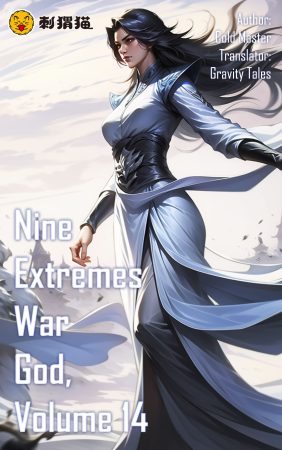Chapter 123: First Battle of Córdoba
Our Discord Server: https://discord.gg/PazjBDkTmW
You can buy coins here to unlock advanced chapters: https://gravitytales.com/coins-purchase-page/
“Ping!” A bullet struck a stone, kicking up a cloud of dust. In the distance, a machine gun rattled nonstop, and from an unknown location, the groans of wounded soldiers who were not yet dead could be heard.
Behind a barricade, a line of Republican soldiers was firing fiercely. Opposite them, Nationalist soldiers dodged bullets, inching closer to their objective. Not far away, inside a building, two German snipers were loading bullets into their rifles.
With practiced skill, they extended their rifles out of the window and aimed at the Republican soldiers in the barricade. They gently squeezed the triggers, and a gunshot rang out. The bullet flew, drilling into the head of a Republican soldier. The impact threw the soldier backward.
They repeated the action: work the bolt, aim, gently squeeze the trigger. Another gunshot, another bullet flying toward its target, and finally, a spray of blood as another body fell.
Artillery support finally arrived. A huge cloud of black smoke erupted from the Republican machine gun nest that had been spewing fire. Rubble and stones flew everywhere, mixed with mangled body parts and torn pieces of uniform. The machine gun, twisted and bent, was thrown a short distance away, and the nest fell silent.
“Clang, clang…” A Panzer II tank rolled over the rubble in the street, slowly emerging from the other end of the block. Its turret began to turn toward the barricade, adjusting the angle of its 20mm main gun as it moved.
Behind the tank followed a group of Spanish soldiers in steel helmets. They were crouched low, holding their rifles and carefully using the tank for cover as they moved slowly forward. The tank stopped at the street corner with its turret exposed, and then the 20mm cannon spat fire.
“Boom!” A large hole was blown in the Spanish Republican barricade, and the soldiers inside were thrown about. But from a distance, another team of soldiers rushed up to reinforce them, braving the artillery fire. They fired frantically at the tank with all kinds of weapons, the bullets creating dazzling sparks on the tank’s hull.
“Reverse!” the German tank gunner inside commanded loudly. While firing furiously with the turret’s machine gun, he had the man beside him quickly reload the 20mm cannon.
The tank shuddered slightly and began to retreat. As it pulled back, it exposed the Spanish infantry following behind. Two of them were quickly cut down by incoming bullets, and the rest hastily retreated with the tank.
However, after reversing less than half a meter, the German tank surged out from the corner again. This time, it didn’t just expose half its body but rushed into the middle of the street. The 20mm cannon spat fire once more, and the machine gun also opened up with a furious barrage. The Republican fire from the opposite side was clearly suppressed.
From a rooftop over a hundred meters away, the German snipers fired again, taking out a Republican soldier who had taken the place of a dead machine gunner. Then, the two of them picked up their rifles and moved to a new position. This was a tactical requirement. Although the enemy’s counter-sniper tactics were quite rudimentary, all German hunter-killer teams participating in the battle were required to strictly follow the regulations in the tactical manual.
And facts had proven that this tactic of shooting and moving was both reasonable and highly effective. More than once, snipers had reported that a minute or two after they left their firing position, the original position was hit by retaliatory artillery fire. Therefore, many sniper teams would strictly adhere to the sniper tactics manual personally compiled by the Führer, even though most of the content in this manual came from an article titled “Sniper Training Tutorial” in a late-21st-century amateur military enthusiast magazine.
On the other side, the barricade finally collapsed under another artillery attack. The Panzer II, with infantry cover, charged up onto the ruins of the barricade. The Spanish Nationalist soldiers were busy setting up machine guns on the rubble. The sound of gunfire in the immediate vicinity gradually subsided, but in the distance, the dense crackle of gunfire continued.
“General, we have already occupied three-quarters of the city of Córdoba. Although the Republican army is still putting up stubborn resistance using the terrain, we expect to completely occupy Córdoba by tomorrow afternoon,” an officer in the uniform of a German lieutenant general said, proudly pointing at the map to brief Franco on the current battle situation. “In the field, my 8th Panzer Division has advanced to the south bank of the Guadiana River.”
As he explained, he pointed to the border region next to Portugal on the map and said, “Our army has already taken control of Badajoz. The Republican forces were forced by the situation to abandon it. As long as there are no problems with the speed of the follow-up troops, our forces will encircle the central city of Cáceres next week.”
Franco nodded. He was very satisfied with the Germans’ performance. Standing before him was the Chief of Staff of the German Wehrmacht, Lieutenant General von Bock. His steady command had allowed Franco’s army to turn the tide, gradually establish a firm footing, and even show signs of a counter-offensive.
The 2nd SS Panzer Division, sent as reinforcements from Germany, had performed brilliantly in the counter-attack on Córdoba. They had dismantled the Republican defensive line on the outskirts of Córdoba with incredible speed, leading Franco’s battered remnants all the way back to the city center. Although the casualty figures for Franco’s army made him wince, the overall war situation was excellent.
Meanwhile, the Wehrmacht’s 8th Panzer Division had advanced triumphantly, pushing all the way to the south bank of the Guadiana River, looking poised to take the important central Spanish city of Cáceres. Once Cáceres was taken, Franco’s forces could link up, completely resolving the awkward situation of being divided.
From the results, the performance of the German Wehrmacht supporting Franco was far superior to that of the Soviet Red Army supporting the International Brigades and the Republicans. At least up to this point, on any battlefield where the Germans had joined, they had not been defeated. They had advanced victoriously all the way, looking invincible.
“General von Bock, where will you direct your main offensive next? Near the Guadiana River, or in Córdoba?” Franco asked, unable to contain his curiosity after studying the map for a long time.
“My direction of attack was personally formulated by the German General Staff, and even by the Führer himself. For now, I only know that the Führer is rather interested in Cáceres. Therefore, I will concentrate the armored forces under my command to capture Cáceres as quickly as possible, as a 36th birthday gift for the Führer.”
“I never imagined the Führer was so young!” Franco seemed very interested in Akado. “He is a few years younger than I am, yet he has already become the Führer of all of Germany. Even a general older than him like yourself holds him in such high regard.”
“The Führer’s authority has been tested through countless victories. That is why we do not question his decisions,” von Bock said with an expression of worship. “He is like a gift from God to the German people, bringing hope to our suffering nation.”
“I must meet your Führer one day, when I have the chance,” Franco said with a nod. “After the civil war in Spain ends and it becomes a strong and free country, I will definitely go to meet your Führer.”
“You would be very welcome, General Franco,” General von Bock said with a nod.
“There is one more question I would like to ask, General von Bock,” Franco said, seemingly remembering something and asking casually, “A general as experienced as yourself must be considered a very high-level commander in Germany, right?”
“Thank you for your affirmation, General Franco,” von Bock replied with a smile. “We have many famous generals, such as the Commander of the Wehrmacht, General von Brauchitsch. Don’t be fooled by his youth; he is indeed a capable general discovered by the Führer. Of course, there are many others who are better at commanding battles than I am.”
At this point, von Bock deliberately paused, then made a joke. “Before I left, the Führer told me that he saw this old bone of mine was about to retire, so he was giving me this opportunity to earn a bigger pension.”
“Haha,” Franco laughed twice, then clapped von Bock on the shoulder. “You are a humorous man, not like many of the stiff Germans. It seems there are no difficult problems here that require your personal attention. How about we have a glass of whiskey together tonight?”
“A drink is no problem, General Franco. But according to the Führer’s ‘Front-line Combat Code of Conduct,’ I can only have a maximum of three alcoholic drinks per day. Of course, I hear that if I become a full General of the Wehrmacht, this restriction can be relaxed to four glasses,” von Bock said with a smile.
“Then if you become a Field Marshal, you’ll be able to drink half a bottle,” Franco joked, in high spirits due to the stabilizing and increasingly favorable situation on the front. “You Germans are really interesting, even setting a limit on drinking.”
“Long live the Führer!” An intelligence officer entered at that moment. He snapped to attention, raised his right arm in a salute to von Bock, and then said, “General, we just confirmed the news from the Air Force Commander, Colonel Dick. This afternoon around three-thirty, the friendly Spanish air force lost three HE-51D export model fighters.”
“The conclusion?” von Bock asked, frowning at the intelligence officer.
“The Air Force has analyzed the process of the air battle and confirmed the fact that the skills of the Republican fighter pilots have improved significantly,” the intelligence officer replied, looking at the report. “Colonel Dick’s side speculates that in this air battle, the opponents were Soviet pilots, not those Republican rookies. And the planes they used were also the I-16 fighters that the Soviet Union has only recently successfully developed.”
“Does Colonel Dick’s side have any countermeasures?” von Bock asked after thinking for a moment.
“Colonel Dick suggests that if conditions permit, our pilots can also go up and have a try,” the intelligence officer said, searching the report for a moment before finding Dick’s recommendation. “He also said that once it is determined that air superiority must be guaranteed, he will use the air force’s secret weapon.”
“Tell him I approve! Let him handle it as he sees fit!” von Bock commanded, handing the intelligence folder back to the officer.
He then turned around and looked at Franco. “My apologies, General Franco. It seems our drink will have to wait a few days.”
“No problem, General von Bock! When we are victorious, I will treat you to a good drink,” Franco said with a smile.












